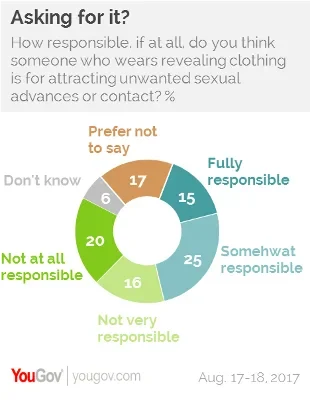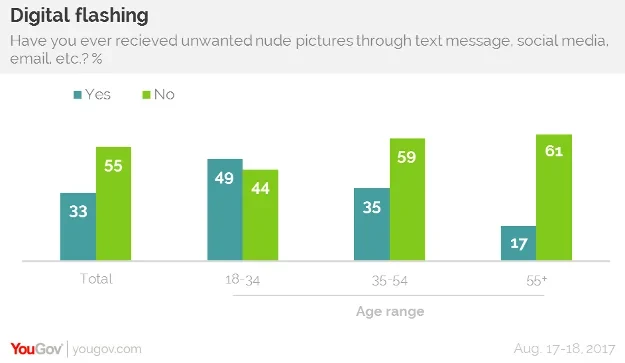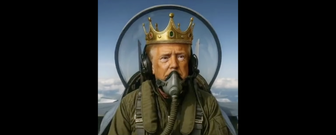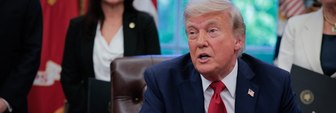40% of US adults believe that, if someone is wearing revealing clothing, they are responsible for any unwanted sexual contact
In the era of Pussygate and Brock Turner, we have likely all heard the phrase “she was asking for it.” Journalists and activists alike have come together in response to these recent events, attempting to fight the idea that anyone is ever inviting rape, assault, or harassment. However, Americans might not be on the same page.

In fact, recent YouGov data suggests that the nation is divided on whether blame should be placed on the assaulted or the assaulter—40% of US adults believe that, if someone is wearing revealing clothing, they are responsible for any unwanted sexual advances or contact that follows. A narrow majority of respondents, 53%, felt that the same applies for anyone who is engaging in flirtatious behavior.
The above stats seem indicative of how Americans perceive the intentions of scantily clad individuals—55% of respondents agree that the main reason women wear revealing clothing is to attract attention, including 61% of males.
Consent is another crucially important topic that has made headlines over recent months. 28% of US adults have found themselves in a situation where, after turning down someone’s sexual advances, that individual continued in their pursuit. For women and millennials, this number is even greater—33% and 39% respectively.
When one traditionally thinks of a “flasher,” the imagine that comes to mind is likely that of a middle-aged man lurking on a street corner sporting an oversized trench coat and a devious grin. However, technology has shifted this long-lasting stereotype, making it possible for virtually anyone to expose themselves to unwitting bystanders via text, social media, or email.
According to new data from YouGov, one-third of US adults, 33%, have received one of these “digital flashes.” In fact, 15% of unwanted nude pictures came from complete strangers—perhaps unsurprising given the recent popularity of apps which promise anonymity like Yik Yak and Whisper. Similarly, at 49%, millennials were far more likely than any other age group to have received an unsolicited naked photo.









